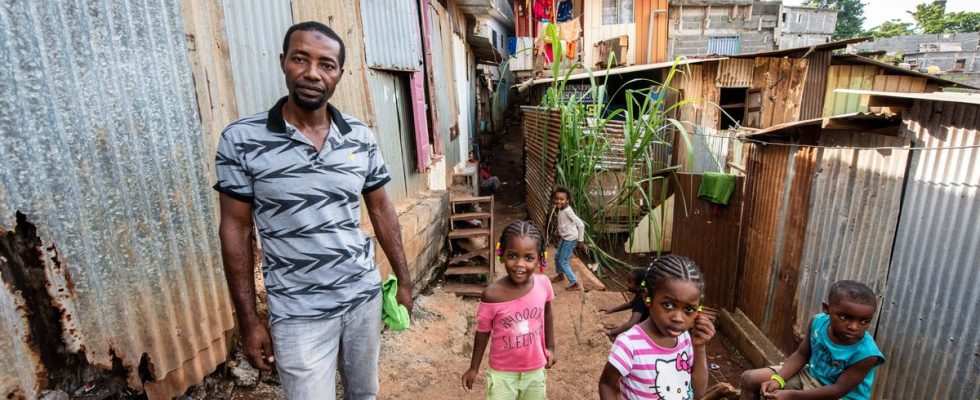The situation of children overseas worries Unicef. Growing up there means being exposed, more than in mainland France, to poverty, the United Nations Children’s Fund said in a study on Monday, calling for “awareness and ambitious action” from the part of public authorities.
“There is a very significant difference between the situation of children in mainland France and the situation of children overseas,” warns Adeline Hazan, president of Unicef France.
Consequences on education or health
“Unsurprisingly, the first attack on children’s rights is poverty in these overseas territories: in Mayotte eight out of ten children live in poverty and in Guyana there are six out of ten, while in France it is is two out of ten. And from there, there are of course many rights that are not realized, such as the right to education or health,” she explains.
“The attack on the right to education is terrible, especially as it is aggravated in certain territories by distance, such as in Guyana, where children are really physically removed from school structures,” according to Adeline Hazan.
The head of the UN fund estimates the number of out-of-school children at 10,000, according to cross-checks made by Unicef, as no official database is available. Despite the specificities of each overseas territory, Unicef also highlighted a certain number of common points between Mayotte, Guyana and Reunion Island, where 46% of children live in a poor household – “this would concern 110,500 children” , according to this study.
An interministerial committee to improve the situation
One of the explanations, according to this report, is that these territories, depending on their constitutional status, see the skills and responsibilities of public decision-makers intertwined: State, communities, departments, municipalities. “The institutional skills of overseas local authorities vary according to the territories and we were able to observe during the trips that often (these) defer responsibility to each other for this or that theme. Sometimes there are cross-skills, all that makes things even more difficult,” says Adeline Hazan.
While the State began important work with overseas communities in July to improve the living conditions of populations within the framework of the Interministerial Committee for Overseas Territories (Ciom), “what we really want is to restore the child at the heart of the concerns of public authorities when it comes to overseas territories,” proclaims the president of Unicef France. A progress report on Ciom will take place on Thursday and Friday at the Ministry of Overseas Territories.

